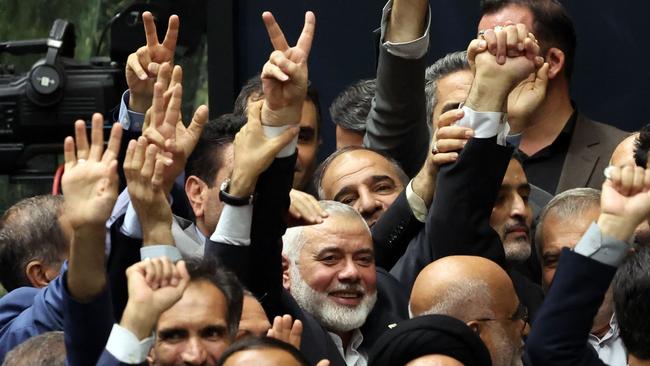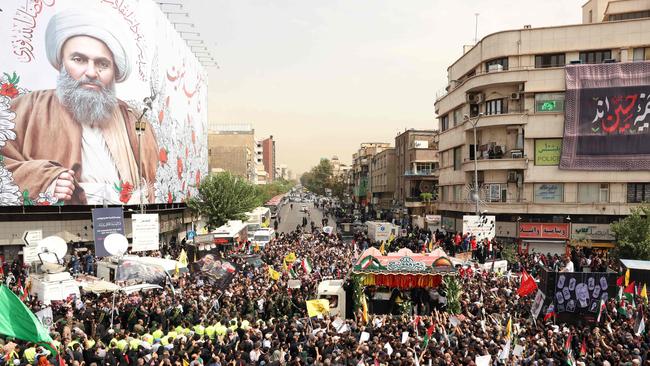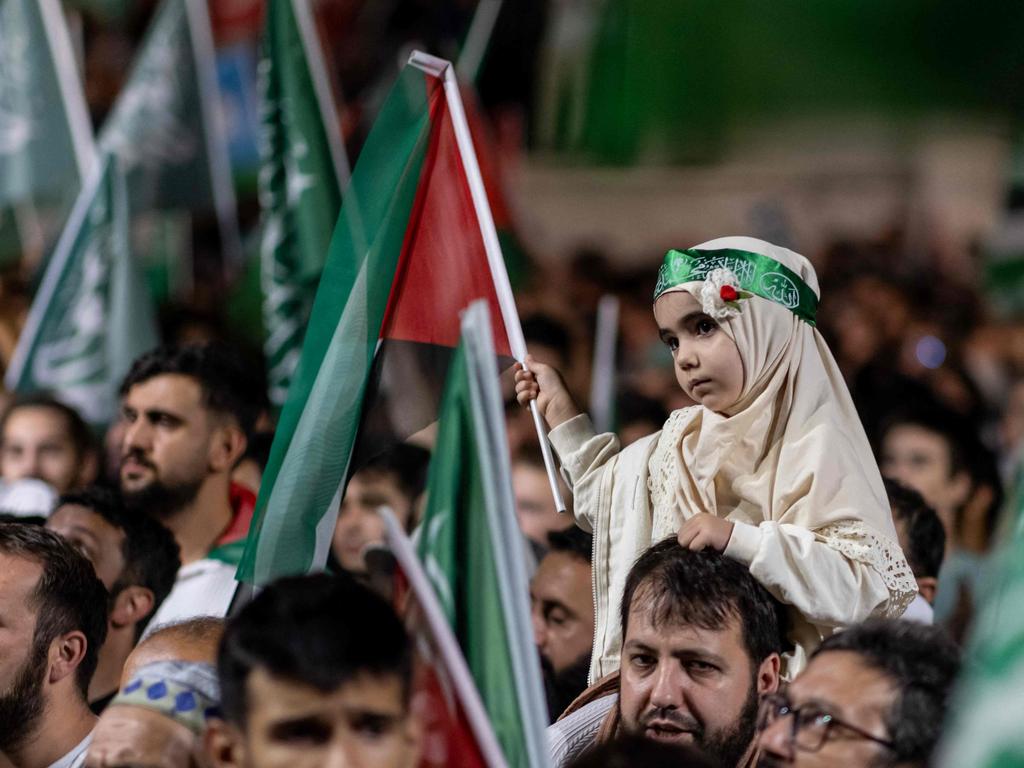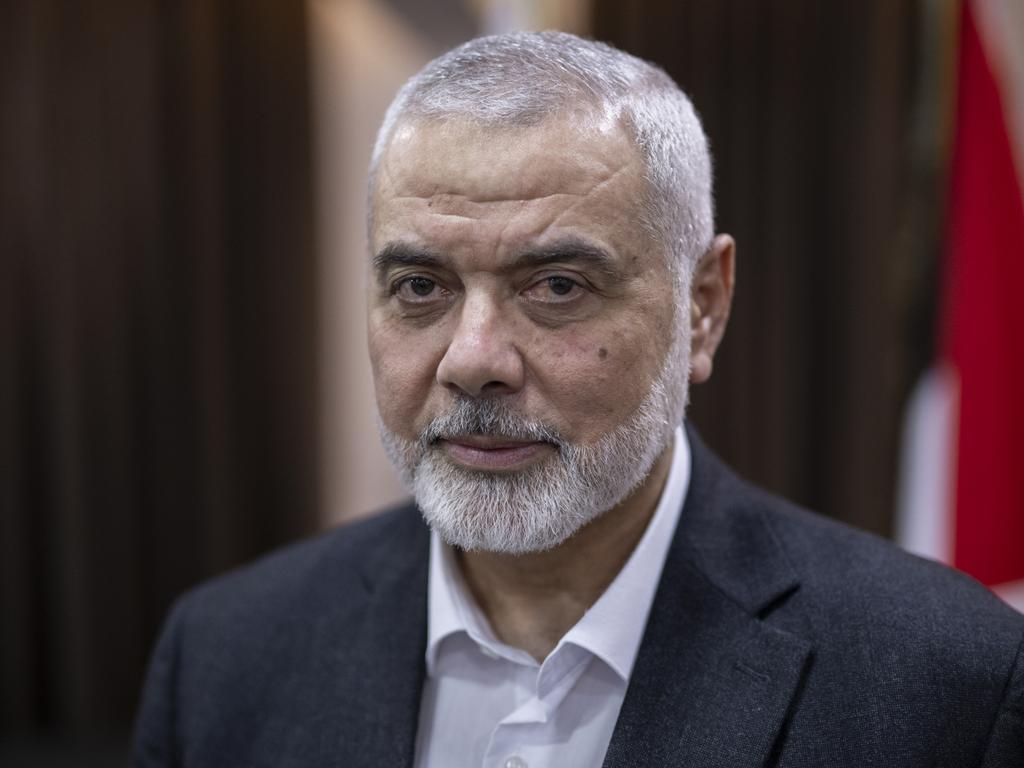Hamas leader Ismail Haniyeh killed by remote controlled bomb in his room in Tehran
Smuggling a bomb into Ismail Haniyeh’s Tehran room and detonating it by remote shows Israel’s intelligence and operational capability within Iran and represents a major failure of Iranian security.
The assailants who pulled off the mysterious killing of Hamas political leader Ismail Haniyeh this week in Tehran did so by getting a bomb into his heavily guarded room at an Islamic Revolutionary Guard Corps guesthouse, people familiar with the circumstances said.
The use of a bomb to carry out the killing shows a significant intelligence and operational capability within Iran’s borders and represents a major failure of Iranian security to protect a diplomatic guest. Haniyeh was in Tehran to attend the inauguration of the country’s new president.
The planners somehow penetrated an Islamic Revolutionary Guard Corps facility, learned which room was Haniyeh’s and were able to confirm he was there in order to detonate the bomb.
“They were able to kill him from a relatively close distance,” said Mark Dubowitz, chief executive of the Foundation for Defense of Democracies, a Washington-based think tank. “That’s got to show Khamenei the extent to which Mossad has deeply penetrated their system.” The Mossad is Israel’s spy agency.
Iran and Hamas have blamed the attack on Israel and vowed revenge. Israel hasn’t commented publicly on the matter.

The attack came as Iran was celebrating not only the inauguration of a new president but also its collection of aligned regional militias arrayed against Israel. Haniyeh was there representing Hamas, along with attendees from Palestinian Islamic Jihad, Yemen’s Houthis and Lebanon’s Hezbollah.
The attack probably took months of planning, a former senior Israeli intelligence official said.
Israel’s spy chief vowed in January that his organisation would kill all those responsible for the Hamas-led attacks on Oct. 7 in the south of Israel that killed 1,200 people and saw 250 taken to Gaza as hostages.
“It will take time,” Mossad chief David Barnea said. “But our hand will catch them wherever they are.” Two days earlier, Saleh al-Arouri, a founder of Hamas’s military wing, was killed in Beirut in a blast for which no one took responsibility.
Iranian Supreme Leader Ayatollah Ali Khamenei said Wednesday that Iran would retaliate over Haniyeh’s killing.
“The criminal and terrorist Zionist regime with this action prepared the ground for a harsh punishment,” he said. “We consider it our duty to seek revenge.”
Photos of the Islamic Revolutionary Guard Corps guesthouse where Haniyeh was staying show little damage to the exterior walls or the structure, indicating the attack involved a small, controlled explosion that detonated within his room, said independent intelligence analyst Ronen Solomon, who specialises in Israeli operations inside Iran.

Israel has long seen Iran as an existential threat and has made it the focus of its primary intelligence efforts, former security officials said. It has been able to get agents into the country and has been blamed by Iran for working with local opposition groups, as well as for carrying out assassinations of high-value targets like nuclear-program scientists.
Placing the bomb would likely have required some kind of human asset, Solomon said.
“It’s either treachery in the circle of Haniyeh or in the Iranians,” he said. The bomb could have been brought into the room unknowingly by someone in Haniyeh’s delegation, Solomon said. A bodyguard also was killed in the blast.
This was Haniyeh’s third trip to Iran since the Oct. 7 attacks that set off Israel’s invasion of the Gaza Strip, according to Solomon. The repeat visits would have given the attackers time to study Haniyeh’s movements inside the country.
His first trip, back in November 2023, was called out by Israeli military spokesman Daniel Hagari.
“If one wants to understand who is involved in this war, one must pay attention also to the visit of one of Hamas’ murderous leaders, Ismail Haniya, in Iran today,” Hagari said at the time, according to a transcript.
Israel has a long history of targeted killings and sabotage operations inside Iran – rarely officially acknowledging its role.
In 2020, Iran accused Israel of killing top nuclear scientist Mohsen Fakhrizadeh while he was travelling with his wife in a popular vacation spot east of Tehran. The scientist was killed when his convoy came under fire from a machine gun mounted on a Nissan pick-up truck.
Ali Shamkhani, secretary of Iran’s Supreme National Security Council, said at the time that no perpetrators were present at the site and that the machine gun was controlled by electronic equipment.
Iran also accused Israel of killing four nuclear scientists in Tehran between 2010 and 2012, operations that Israel hasn’t confirmed or denied. One of the killings in 2012 involved a magnetic bomb stuck to a chemical engineer’s car.
Dow Jones





To join the conversation, please log in. Don't have an account? Register
Join the conversation, you are commenting as Logout